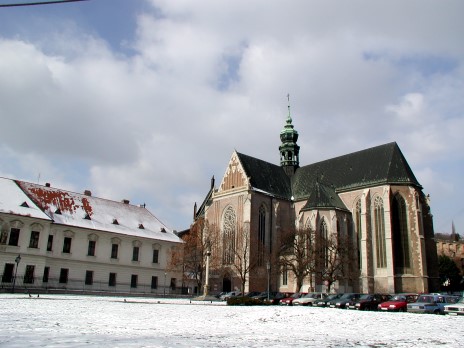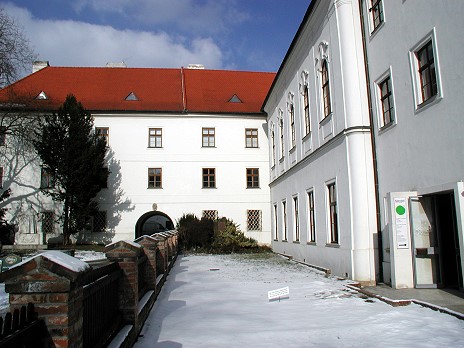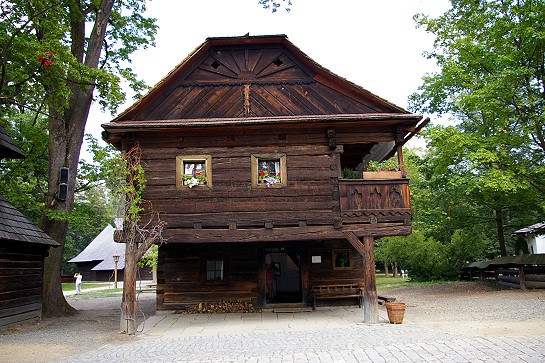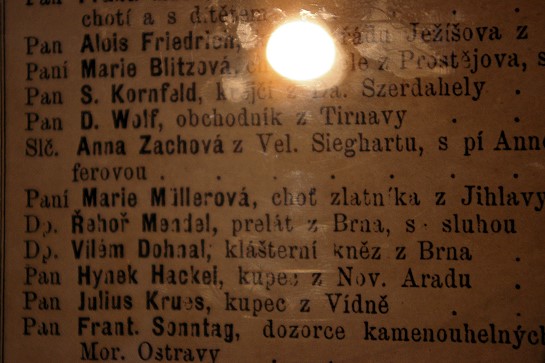Johann Gregor Mendel - Curriculum vitae
Johann Mendel was born on July 20, 1822 in a German-speaking farmer family in the village of Heinzendorf, Hynčice (Austrian Silesia, Hynčice are today part of village Vražné, Czech republic). At the time of Johann's birth, the Mendel family farmed a small plot of land, with a garden where they grew fruit trees and had beehives. They took a loan to rebuild their wooden house in brick.
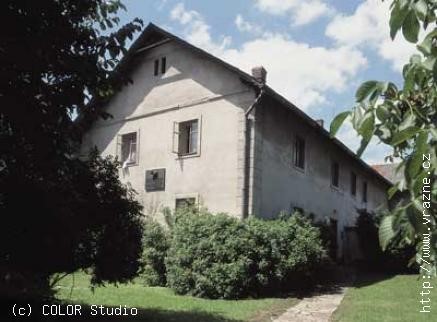
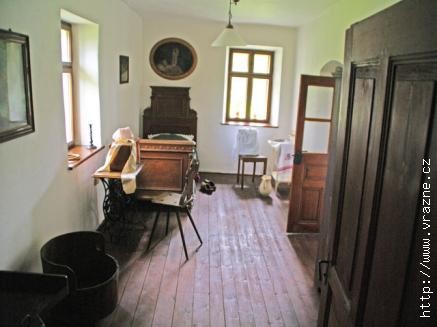
The Mendel family house and the farmstead are still preserved, and contain a memorial exhibition to Gregor Mendel. (photo courtesy Vrazne village, http://www.vrazne.cz/)
In 1834 despite the bad finantial situation of Mendel's family, they still sent Johann to highshool in Opava. He helped to support himself by giving lessons to his schoolmates for a fee.
In 1841, despite the continuing bad finantial situation, Mendel continued his education at Philosophy Institute in Olomouc (he would have to study there for two years before he could be admitted to the university, he started to learn Czech).
In 1843 having finished his philosophical studies, Mendel requested admission to the Augustinian monastery of St. Thomas in Brno "to free himself from the bitter struggle for existence". He adopted a new name: Gregor, the name by which we now know him. Among the tasks he was given when he became a monk was to give spiritual care to the sick people in the local hospital. He was very unhappy to see anyone ill and in pain and his timidity confined him to bed for more than a month. He sought some way to give up this work and become a teacher, which would allow him to pursue scientific studies.
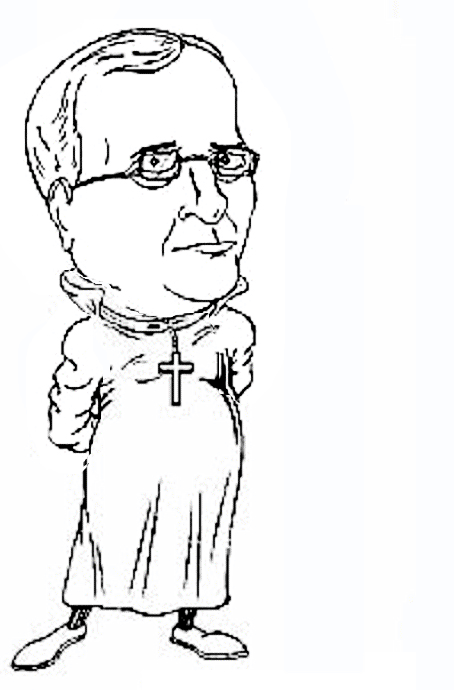
In 1841, despite the continuing bad finantial situation, Mendel continued his education at Philosophy Institute in Olomouc (he would have to study there for two years before he could be admitted to the university, he started to learn Czech).
In 1843 having finished his philosophical studies, Mendel requested admission to the Augustinian monastery of St. Thomas in Brno "to free himself from the bitter struggle for existence". He adopted a new name: Gregor, the name by which we now know him. Among the tasks he was given when he became a monk was to give spiritual care to the sick people in the local hospital. He was very unhappy to see anyone ill and in pain and his timidity confined him to bed for more than a month. He sought some way to give up this work and become a teacher, which would allow him to pursue scientific studies.
Augistinian abbey in Old Brno
contains Mendel museum (http://www.mendel-museum.org/)
contains Mendel museum (http://www.mendel-museum.org/)
1849 Mendel took the teacher position in Znojmo. A year later he failed the examination that was necessary for official approval of his teaching career.
1851 Mendel was sent to the University of Vienna to study natural history. Mendel stayed almost two years, a period of enormous excitement and progress for him, despite the fact that he did not pass the teachers' examination because of nervous problems.
1853 Mendel returned to Brno from Vienna with plans for a research program on heredity.
1854 Mendel resumed teaching in the highschool.
1865 Mendel published his famous paper describing his results and conclusions under the title "Experiments in Plant Hybridization" in the Proceedings of the Natural Science Society of Brno. (see the entire paper at http://www.mendelweb.org/Mendel.html)
1868 Mendel became an abbot. He won the elections and got the support of Czech monks. The atmosphere of tension between the two ethnic communities in Brno had been increasing for years (the police memo stated that the election of any one of three specific Czech monks would be undesirable). Mendel became consumed with his increased administrative responsibilities and his scientific work largely ended. He started a long dispute with the civil government over taxes on religious institutions (Mendel was the only head of a monastery in the country who refused to accept new taxation law, a stand that he maintained until he died).
1883 Abbot Mendel had fallen ill in, as his kidney disease which he had suffered from for years became more acute. He went to a spa in the city of Rožnov that summer to recuperate, but the visit did him little good. By autumn, he was unable to go out into the monastery garden.
1851 Mendel was sent to the University of Vienna to study natural history. Mendel stayed almost two years, a period of enormous excitement and progress for him, despite the fact that he did not pass the teachers' examination because of nervous problems.
1853 Mendel returned to Brno from Vienna with plans for a research program on heredity.
1854 Mendel resumed teaching in the highschool.
1865 Mendel published his famous paper describing his results and conclusions under the title "Experiments in Plant Hybridization" in the Proceedings of the Natural Science Society of Brno. (see the entire paper at http://www.mendelweb.org/Mendel.html)
1868 Mendel became an abbot. He won the elections and got the support of Czech monks. The atmosphere of tension between the two ethnic communities in Brno had been increasing for years (the police memo stated that the election of any one of three specific Czech monks would be undesirable). Mendel became consumed with his increased administrative responsibilities and his scientific work largely ended. He started a long dispute with the civil government over taxes on religious institutions (Mendel was the only head of a monastery in the country who refused to accept new taxation law, a stand that he maintained until he died).
1883 Abbot Mendel had fallen ill in, as his kidney disease which he had suffered from for years became more acute. He went to a spa in the city of Rožnov that summer to recuperate, but the visit did him little good. By autumn, he was unable to go out into the monastery garden.
A spa building where Mendel lived is a part of the Walachian Museum today.
Notation in arrival-book documenting the visit of Johann Gregor Mendel in Rožnov spa in 1883 (collection of Walachian Museum, Rožnov, Czech republic).
1884, January 6, Mendel died in Brno at age 61.


